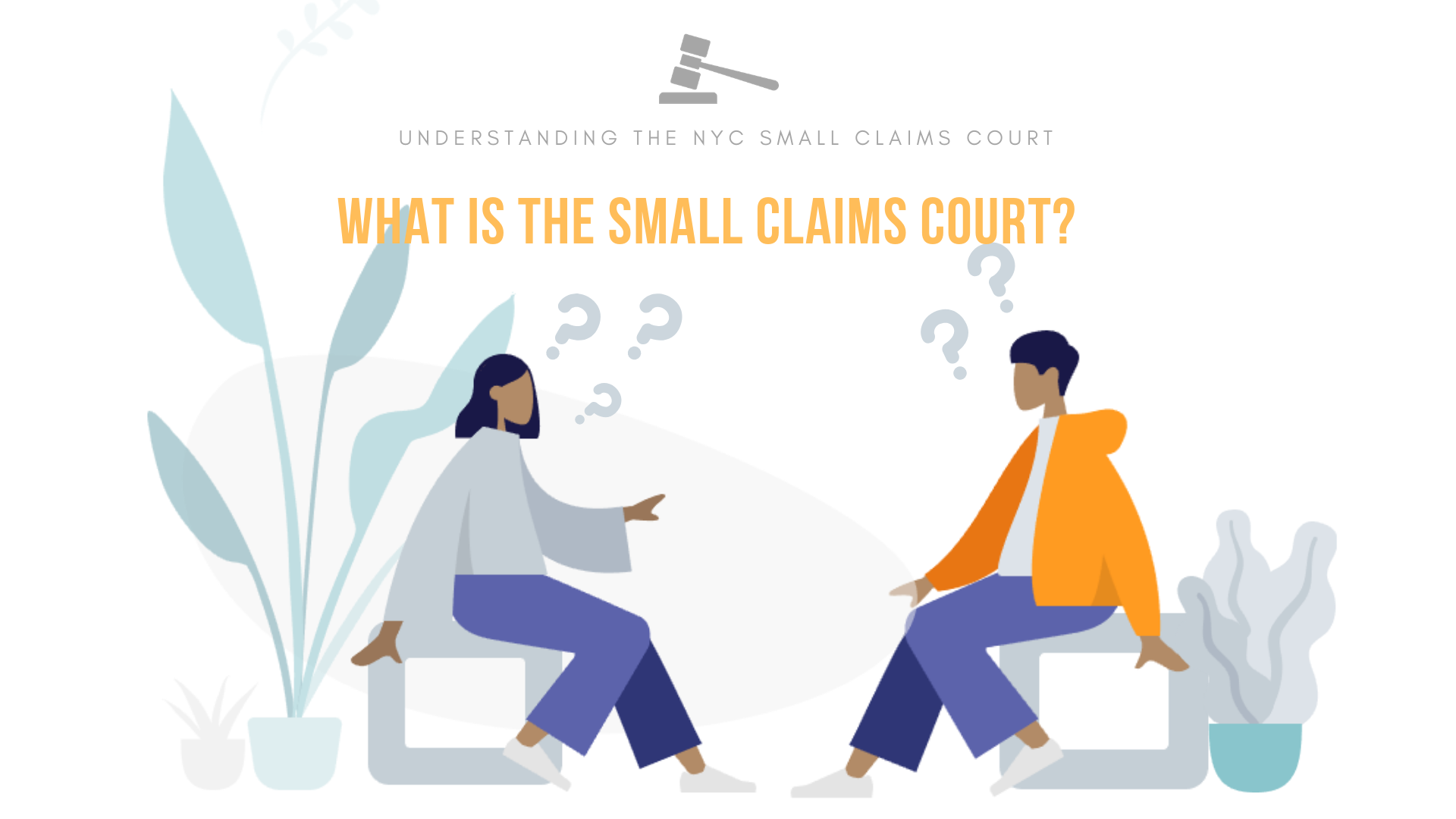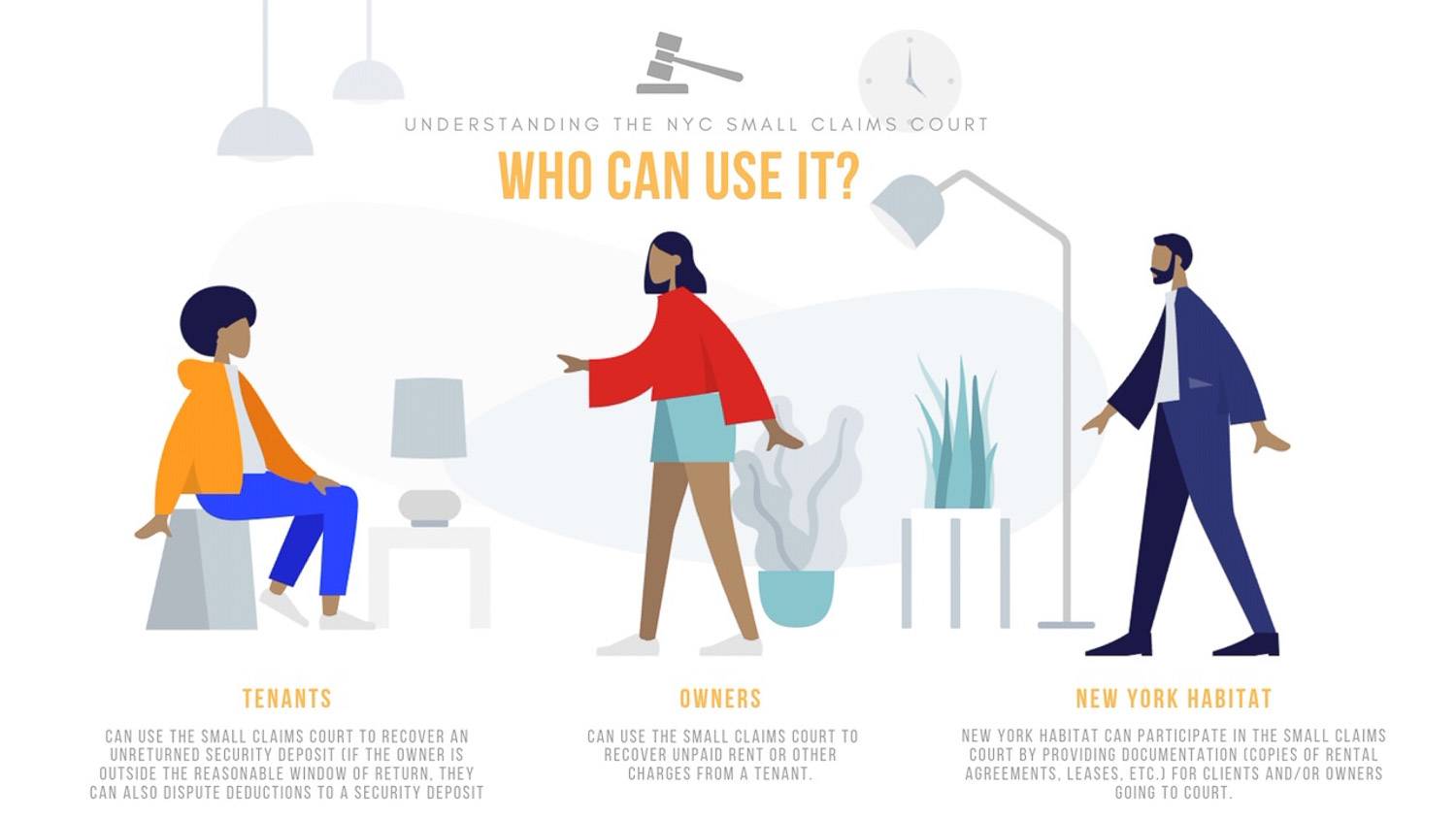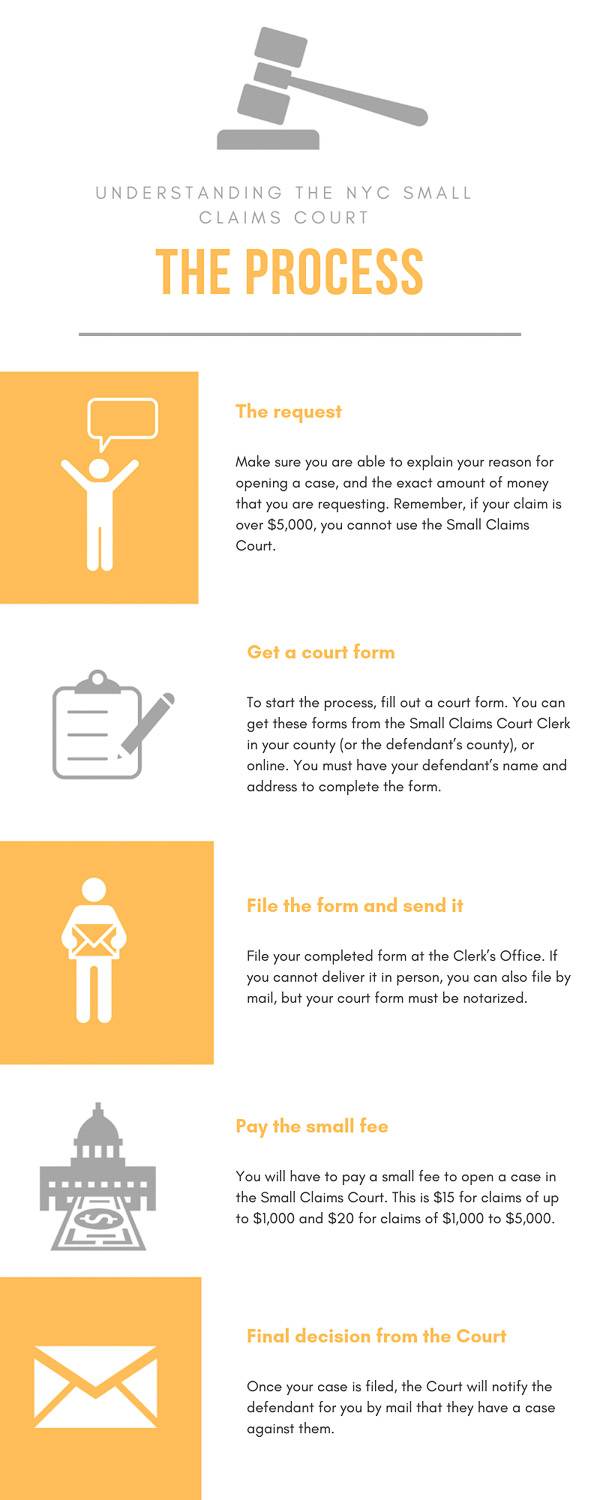
Using the Small Claims Court of NYC doesn’t have to be intimidating when you have all the information and know how you can use it!
Living in New York City in a furnished apartment can be one of the most amazing experiences of a lifetime. You’ll enjoy the independence of having your own space in one of the greatest cities in the world, access to public transportation that makes it easy to get around, and of course, the world-class attractions that are famous in every corner of the globe!
The common reality between all people in a rental situation is that money must be paid from a tenant to a landlord. At times, rental experiences don’t always go as smoothly as one might hope, and due to human error or misunderstanding, there may be troubles recovering money that is owed to one or more parties on a lease. Fortunately, New Yorkers have an invaluable ally to help them: the New York Small Claims Court.
Before we dive into the basics of the Small Claims Court, it’s important to know a few things. Tenants, owners, and New York Habitat are all eligible to open a case in the Small Claims Court, though our situations are all a little bit different. As an agency, New York Habitat strives to ensure that disputes are settled before they have to be taken to court, but we are not lawyers and cannot offer legal advice or take a case to court for you. Always collaborate with your agent and communicate with your owner or tenant as much as possible before seeking legal action.
Keep in mind that the Small Claims Court is a resource that is designed to help you in a last resort situation. Remember that your landlord or apartment owner legally has “a reasonable amount of time” to return your security deposit to you. To learn more about whether your security deposit situation is eligible for Small Claims Court, read our blog about the ins and outs of security deposits.
What is the Small Claims Court?

The Small Claims Court is an inexpensive and accessible court for monetary claims of up to $5,000.
The Small Claims Court is a division of the NYC Courts for cases where the monetary amount sought is less than $5,000 (if your amount is more than $5,000, you must open a civil case). The Small Claims Court is often called the “People’s Court” because of its design: It’s inexpensive, simple, accessible to people of all backgrounds, and there is no need to hire a lawyer.
There are a few stipulations about whom can use the Small Claims Court. To open a case, you must be at least 18 years old, and either the claimant (the person opening the case) or the defendant (the person being sued) must be a permanent resident of New York City. If you’re from out of state or abroad and were staying in New York in a short-term rental, there’s no need to worry! As long as you have the name and address of your apartment’s owner and they’re a resident of New York City, the court is still at your disposal.
Who can use the Small Claims Court?
New York Habitat’s approach to furnished apartment rentals is to match clients with a licensed agent who is trained to connect tenants with their ideal apartment and serve as a liaison between apartment owners and renters during the contract period. We take great pride in our person-to-person approach and strive to satisfy every person involved in a contract. With multiple parties involved in a rental, everyone will be happy to know that they can use the Small Claims Court to protect their interests!
- Tenants can use the Small Claims Court to recover an unreturned security deposit (if the owner is outside the reasonable window of return, and your agent has been unable to contact them). They can also dispute deductions to a security deposit if they are unable to settle the dispute themselves with the owner.
- Owners can use the Small Claims Court to recover unpaid rent or other charges from a tenant if they and New York Habitat are unsuccessful in doing so.
- New York Habitat can participate in the Small Claims Court by providing documentation (copies of rental agreements, leases, etc.) for clients and/or owners going to court. This service can be utilized by claimants or defendants who rent with us.
The greatest benefit of the Small Claims Court is that it can act as a neutral third party in any dispute and decide the fairest outcome for everyone involved. This makes the court a mutual ally for renters, owners, and our agency alike!
The Small Claims Court process
If you’ve consulted with New York Habitat and decided that your best course of action is to open a case with the Small Claims Court, here’s what you need to do:
Once you’ve received your date and time, make sure to show up for your trial and arrive at least 30 minutes early. If you’re acting through the Small Claims Court, there is no need to hire a lawyer, and you can request an interpreter for the court if you’re not able or comfortable to litigate in English. These are two of the greatest factors that make the Small Claims Court accessible to all as “the people’s court.”
Tips for your case in the Small Claims Court

Collect all necessary documents and evidence before your case, including physical and digital files and copies.
You should prepare to present your case to the Small Claims Court the same way you’d prepare to dispute a security deposit deduction. Be sure to collect any evidence you have, including photos of the apartment, screenshots of any relevant phone or email conversations, written agreements like your lease or rental contract, bills, checks, invoices, or any other relevant documents or items. Remember that if you are the claimant (the person who opened the case), the burden is on you to prove your case or damages. You can also bring a witness to your trial who is an expert on your situation if you feel it will help your case, but remember that you will not be trying to convince a jury, only a judge or arbitrator.
When your case has ended, the judge will announce their ruling. The person who is owed money will then be obligated to pay, and if you are the winner of the case, you’ll now have the justice system on your side as you pursue what you’re owed.

A New York Habitat agent’s mission is to communicate between owners and renters and facilitate conversation to help them reach an understanding.
Of course, New York Habitat cannot take legal action for you and we do not handle the security deposits or rent exchanged between clients and owners, but when you rent with New York Habitat, our agents do whatever they can to avoid legal action for all parties involved. It’s our policy to facilitate conversation between owners and renters and help them reach an understanding. We want you to have the best rental experience possible, and are happy to point you in the right direction if you’re considering opening a Small Claims case.
Want to know more about how you can benefit from working with a licensed agent? Get in touch with us! If you’re ready to start your New York apartment search, be sure to visit our website for our full inventory of furnished apartments, vacation rentals, roommate shares, and bed and breakfast rentals.








Leave a Reply